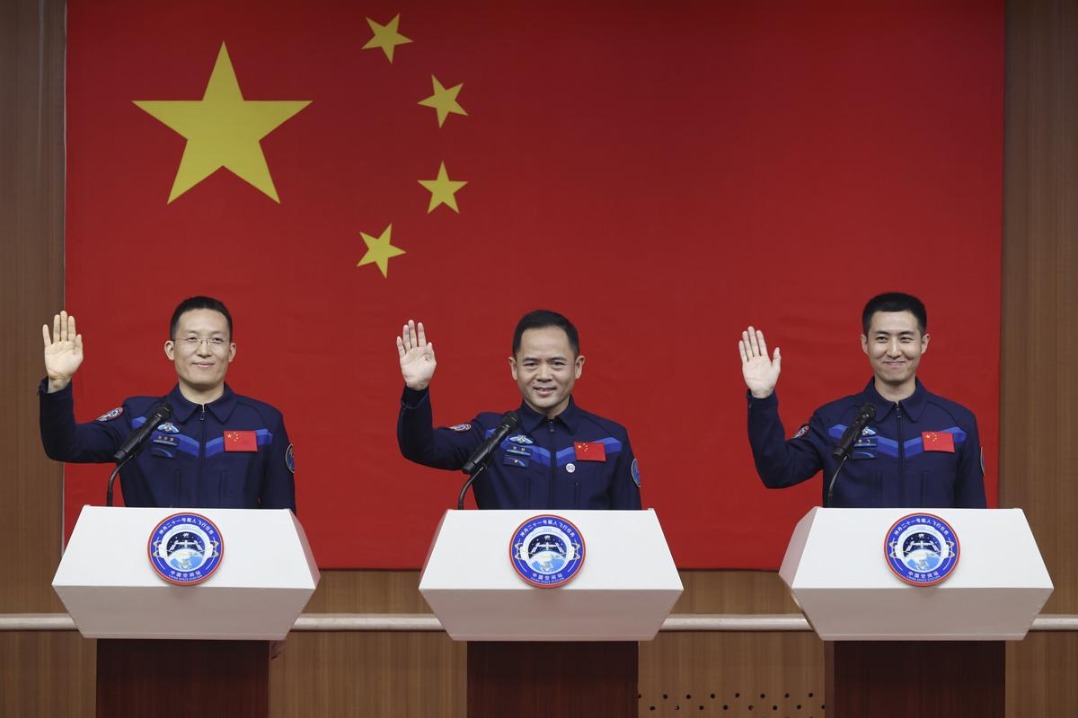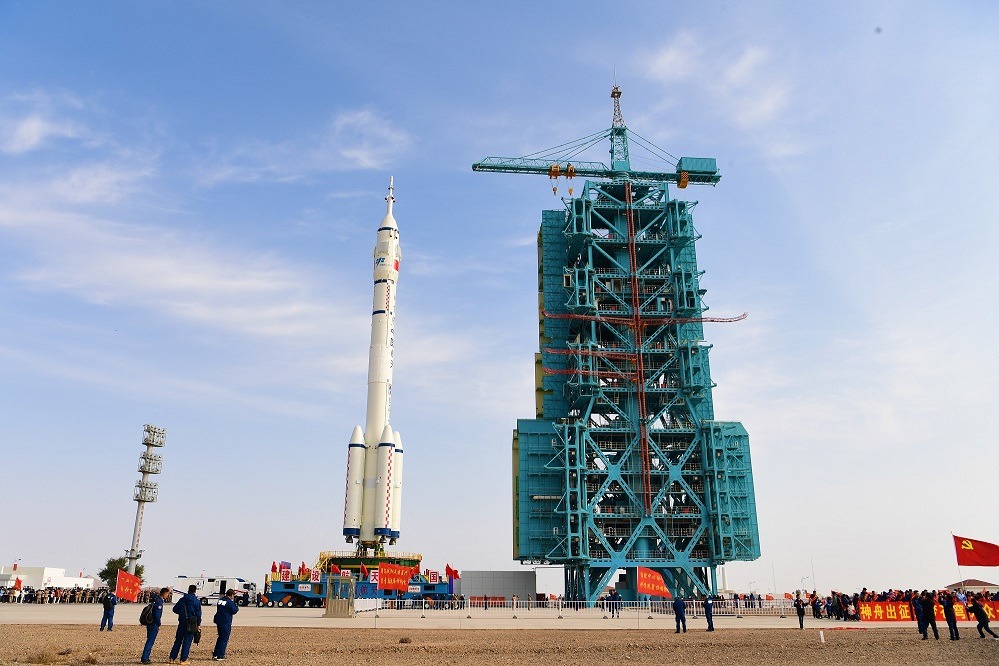Teaching in the midst of war
Returning to his post online, Albadawe Abdalla leads the University of Khartoum's Chinese Language Department with lessons shaped by years of schooling in China, Zhao Xu reports.


"You may serve as an interpreter, but your true calling is to teach', one of my Chinese professors at the University of Khartoum once told me," recalls Albadawe Abdalla, now a doctoral candidate at Tsinghua University's School of Humanities.
After graduating from Khartoum's Chinese Language Department in 2010, he went on to lead the department from 2015 to 2017, before coming to Tsinghua — one of China's most esteemed institutions of higher learning. He did so to study with a scholar specializing in 20th-century Chinese political, literary and philosophical history, a period Abdalla finds especially meaningful, "because of what my country is living through today".
Nearly two and a half years after conflict first erupted in Khartoum on April 15, 2023, and quickly spread across Sudan, Abdalla, 42, is returning to his teaching post — online. Resuming his role as head of the Chinese Language Department, he now offers virtual classes to students eager to continue their studies, regardless of the war.
"With our country facing immense challenges, a teacher can expect little in the way of financial reward. Badawi (Albadawe) had already served as the department head — he doesn't need the title to enhance his resume. He does it purely out of love and a deep sense of responsibility toward the younger generation of his country," says Omer Mustafa, 30, who once studied under Abdalla at the University of Khartoum.
Abdalla recalls his father planting the seed early on: "When I was little, he would read Arabic translations of Chinese magazines and discuss Chinese politics and leaders, including Mao Zedong, often over morning tea with friends. I picked up words and names here and there."
Later, Abdalla watched Jackie Chan films, eager to see "whether a kung fu star could truly fly". "China and Sudan were expanding economic cooperation and forging closer ties, which explains its daily presence in the news," he says. "When I graduated from high school, I chose Chinese over economics and law. I wanted to understand China not through a Western lens, but by reading its story as the Chinese tell it, in their own language — both literally and metaphorically."
That was in 2004, two decades after the Chinese Language Department was founded. With only about 20 students and very few Chinese teachers — including Li Huiyang, who taught there from 2006 to 2008 — resources were scarce.
"Chinese language education in Sudan was just beginning to recover after the civil war and severe economic hardship of the 1990s. There was a serious shortage of teachers, which is why I went as a volunteer, recruited from a middle school in Lanzhou, northwestern China," recalls Li, who remembers sweating through classes during the hot months following the rainy season.
"There was no air conditioning — just a fan attached to a water pipe that lowered the temperature by two or three degrees. Every morning, we filled large plastic Coca-Cola bottles with water from the yard faucet and let the silt settle for a few hours before drinking."
Yet Li felt genuinely elated when locals passing by on the street would call out to him, using a word in the local dialect meaning "friends".
"They told me about Charles Gordon, a British officer and colonial figure who had been active in China during the 1860s and was later killed in 1885, while he was Governor of Sudan, by local forces resisting Egyptian-British rule," Li says. "People made a deliberate effort to draw a parallel, linking the histories of China and Sudan."
"In China we saw hope — for nearly a century, Western powers and Japan had sought to divide and subjugate it, yet today, China stands transformed by its own achievements," Abdalla says. "Solidarity — that's what I witnessed in China in the aftermath of the Wenchuan earthquake, and that's what I want for my country."
He is referring to the catastrophic 7.9-magnitude earthquake that struck Sichuan province on May 12, 2008, claiming nearly 70,000 lives and injuring hundreds of thousands. Abdalla, who had arrived in China the year before as an exchange student at Beijing Jiaotong University, watched in awe as people formed endless lines in the streets, quietly waiting to donate to the victims.
That was also the year Beijing hosted the Summer Olympics, and Abdalla watched the city "changing by the day".
Yet, it was during his two years as a postgraduate student at Northwest Normal University in Lanzhou, Gansu province, that he felt China's history come alive. "The region, though humble in development, is thickly layered with history — of China taking shape, of China defending itself, and of China reaching out to the world," he reflects.
In February 2010, right in the middle of China's Spring Festival, Abdalla boarded a long-distance train so packed that the only ticket he could secure was a standing one. "The carriage was a sea of bodies, with barely any room to move. Yet, people found small ways to care for themselves and one another — whoever went to dampen a towel or buy snacks would gladly do so for those nearby," he recalls.
A few hours into the journey, Abdalla found himself singing along with fellow passengers to the Chinese song Friends Together, Side by Side, its melody spilling from mobile phones.
"That song was the very first Chinese song Badawi ever taught me — the first I ever learned," says Mustafa. "I was fortunate to meet him — he enrolled me in the Chinese Language Department in 2013, when competition was fierce, with over 200 students vying for just 50 places.
"Back then, I worked hard, but the dormitory I shared was rarely quiet. Badawi let me use his office to study and would even bring me food late at night. I trusted him so much that once I even broke down in tears before him," continues Mustafa, who later came to China to study. "I used to wonder why Badawi was different — it's untypical for Sundanese teachers to be close to their students — until I came here. His character and conduct bear the imprint of his encounters with China and with Chinese teachers. As an educator, he internalized those experiences, made them his own, and then gifted them to us."
For Abdalla, teaching and learning were inseparable — two sides of the same coin, united by a single mission: seeking truth for the future.
"When I saw parents bringing their young children to campus, and the library still full even late at night, I knew I had found the right place," says Abdalla, who became a doctoral candidate at Tsinghua University in 2017. His research centers on Lu Xun (1881-1936), the towering figure of modern Chinese literature, who, as a medical student in Japan, turned from science after witnessing his nation's plight, devoting his life instead to awakening and rescuing it through words — a path that resonates deeply with Abdalla's own journey.
"Lu Xun's 1921 short story Hometown (Gu Xiang) brings to mind Sudanese novelist Tayeb Salih's much-celebrated work Season of Migration to the North. While Salih's work explores colonialism and East-West encounters, both stories grapple with the emotional challenges of returning home — evoking nostalgia and disillusionment, alienation and change, and offering sharp social critique," says Abdalla, whose own experience as an interpreter for the Sudanese president Omar al-Bashir in the mid-2010s made him acutely aware of the fractures and contradictions of his country.
Over the past few years, he has translated several of Lu Xun's works into Arabic, including two novels set to be published later this year. "Sometimes, I would change the names of characters and places to Sudanese ones and share them with my Sudanese friends — and most of them naturally assumed they were Sudanese ones," says Abdalla.
"In Chinese literature, I saw the commonalities between China and the Arab world — their histories, struggles and aspirations," he says. "Imperialism once struck China, but it never took root in the same way it has in Africa or Latin America. One crucial reason is that China has always preserved its cultural memory through its own language, allowing stories to be told from its own perspective.
"This remains true today. While Western cultural dominance shapes narratives through social media and global platforms, China has its own ecosystem — WeChat instead of Facebook or Instagram for example — which enables it to assert its own voice and sustain its own collective memory."
Since the civil war erupted in April 2023, on-site classes at the University of Khartoum have halted. Yet, Abdalla and his Chinese Language Department students persist online — he gave tests just a few weeks ago and is expecting new applicants.
"Today, Sudanese universities host the largest number of Chinese language learners in Africa outside of Egypt," he says. "I tell my students: uniting the country is difficult, but it must be done — and it can be done."


Today's Top News
- Xi, Trump chart course for Sino-US ties
- Crew members ready for Shenzhou XXI mission
- Business links with APEC economies to deepen further
- Hands on the helm to steer steady course for Sino-US relations amid global challenges
- Xi-Trump meeting vital for steering Sino-US ties
- China, US reach consensuses on tariffs, export restrictions






























